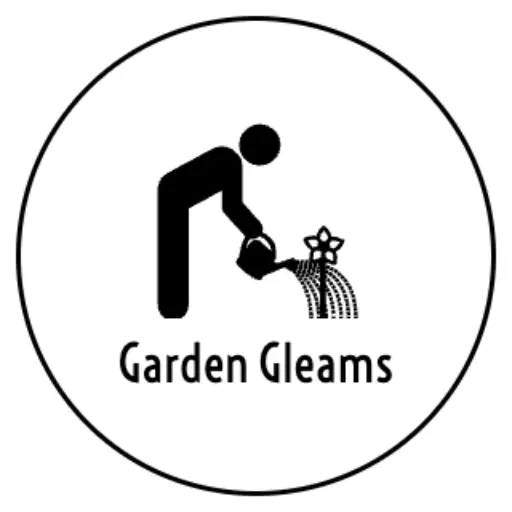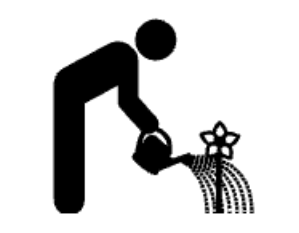Many beginner gardeners often stumble upon the idea of using soapy water to tend to their plants. But wait, is soapy water for plants a friend or a foe?
Well, for over two centuries, gardeners have turned to the age-old remedy of soapy water to combat insect pests plaguing their precious plants.
However, as gardening practices evolve and soap formulations change, the once-simple solution has become shrouded in uncertainty.
Is using soap water for plants really a good idea? Or could it spell disaster for your cherished plants?
The answer isn’t as straightforward as you might think.
In the world of gardening, the term “soap” encompasses a wide array of products, each with its own unique composition and potential effects on plants.
From household detergents to specialized insecticidal soaps, the variety available today is vast and varied. And therein lies the crux of the matter: not all soaps are created equal, and using the wrong kind could spell trouble for your greenery.
So, will soapy water kill plants? Or can plants take soapy water?
The short answer is yes it may be harmful to your plants but with a caveat. It all boils down to the type of soap you use and how you apply it.
Whether it’s the wrong formulation or improper usage, the consequences can be dire for your plants.
Let’s slice and dice this sudsy topic and uncover the truth about using soapy water for your plants.
Jump to a section:
Understanding the Use of Soapy Water for Plants

When you’re dealing with pesky pests like aphids, mealybugs, or spider mites invading your precious plants, it’s only natural to want to protect them.
Soapy water emerges as a popular homemade remedy for this problem. It promises to combat these unwanted visitors without resorting to harsh chemicals.
So why is soapy water so appealing? Is it a good idea to water plants with soapy water?
Well, soapy water is simple and easy to make with just a few household ingredients. Plus, it’s a more eco-friendly option compared to commercial pesticides.
But does it really work? And are there any downsides?
Does Soapy Water Really Work?
The idea behind using soapy water on plants is simple yet effective.
The soap breaks down the outer layer of insects, causing them to dehydrate and ultimately perish. It’s a gentler approach compared to chemical pesticides, making it appealing to eco-conscious gardeners like yourself.
Soapy water is a proven way to get rid of pests like spider mites, aphids, whiteflies, soft scales, psyllids, earwigs, mealybugs, and thrips.
However, it may not have the same impact on hard-shelled or larger insects, such as many beetles and caterpillars.
Notably, soapy water’s insecticidal properties manifest only upon direct contact with the pests’ bodies.
For example, spraying aphid soapy water in the absence of aphids will yield little to no effect.
Moreover, consistent application may be necessary, as soapy water tends to wash away with rain, necessitating reapplication to maintain efficacy.
Check out this video about treating aphids with soapy water:
Can Soapy Water Harm Your Plants?

When it comes to using soapy water as a pesticide, choosing commercial insecticidal soap is your safest bet. These specialized products are created to effectively control pests while minimizing harm to your plants when used correctly.
Unlike most common household soaps and detergents, commercial insecticidal soap is classified as an organic pesticide.
However, it’s crucial to be cautious when using any type of soap on your plants, especially at higher concentrations.
Applying soap solutions on hot, humid days with temperatures exceeding 90 degrees Fahrenheit can potentially result in foliage burn. Additionally, certain soap products pose more significant risks to plant health.
Detergents commonly found in dishwashers and clothes washers can be particularly harsh since they contain chemicals like bleach and boron. These substances have the potential to damage leaves and accumulate to toxic levels in the soil, posing a threat to your plants’ overall well-being.
Even seemingly innocuous liquid dish soaps, such as Dawn, Joy, and Palmolive, pack a punch with their grease-cutting power.
While effective at removing pests, these soaps can strip the protective waxy cuticle from leaves, leaving foliage vulnerable to disease.
Moreover, hand soaps and detergents may contain antimicrobials that can harm beneficial microorganisms essential for a healthy garden ecosystem.
It’s essential to exercise caution to ensure you’re targeting pests specifically and not inadvertently harming beneficial insects like ladybugs, lacewings, wasps, and assassin bugs.
These predators play a vital role in controlling pest populations naturally and should be preserved whenever possible. Similarly, pollinators such as bees and butterflies should be spared from exposure to soapy water.
In some cases, sacrificing a few plants to support beneficial insects, like black swallowtail caterpillars feeding on parsley, can ultimately benefit your garden’s ecosystem.
Fortunately, many of these helpful insects are less susceptible to harm from soapy water compared to your target pests.
Water Plants With Soapy Water: Dos and Don’ts
Before you grab that bottle of dish soap and start dousing your plants, it’s crucial to understand the dos and don’ts of using soapy water in your garden.
Dos:
- Dilute the soap: Mix a small amount of mild liquid soap with water to create a diluted solution. This prevents soap buildup and potential damage to your plants.
- Test on a small area: Before applying soapy water to all your plants, test it on a small, inconspicuous area to ensure they can tolerate it without adverse effects.
- Target pests directly: Use a spray bottle to apply the soapy water directly onto the affected areas where pests are present.
Don’ts:
- Avoid using harsh soaps: Opt for mild, biodegradable soaps that won’t harm your plants or the environment.
- Don’t overuse: Using soapy water too frequently can disrupt the balance of beneficial microbes in the soil and harm beneficial insects like bees and ladybugs.
- Rinse thoroughly: After applying soapy water, make sure to rinse your plants with clean water to remove any residue and prevent soap buildup.
Effects of Soapy Water on Plants and Soil
Now, let’s address the elephant in the room: what are the effects of soapy water on your beloved plants and the soil they grow in?
- Impact on Plants: When used appropriately, soapy water is generally safe for most plants. However, sensitive species or those with delicate foliage may react negatively to the soap’s compounds. Keep an eye out for signs of leaf burn or wilting, and discontinue use if you notice any adverse effects.
- Soil Health: Soapy water can affect soil health if used excessively. The soap residues may accumulate in the soil over time, disrupting its natural balance and potentially harming beneficial microorganisms. To minimize soil impact, use soapy water sparingly and avoid saturating the soil with excessive amounts.
Plants Vulnerable to Soapy Water Damage

While commercial insecticidal soaps are generally safe for use on many plants, certain delicate species can suffer adverse effects even from these specially formulated products.
Among these are sweet peas, certain tomato varieties, hawthorns, portulaca, bleeding hearts, and ferns. Plus, some flowering fruit trees, including plum and cherry trees, fall into this category.
It’s essential to avoid using any type of soapy water or insecticidal soap on these sensitive plants.
Before applying any product, always check the label to identify which plants are particularly susceptible to potential damage from that specific formulation. This extra step can help safeguard your plants and prevent unintended harm to your garden.
FAQs About Soapy Water for Plants
1. Is soapy water good for plants and trees?
Soapy water can be beneficial for plants when used properly, but it’s essential to dilute it and avoid overuse to prevent potential damage.
3. Is soapy water good or bad for vegetables?
Soapy water can be used on vegetables to control pests, but be cautious with sensitive varieties and always rinse thoroughly before consuming.
4. What are the effects of soapy water on soil?
Soapy water can disrupt soil health if used excessively, leading to imbalances in microbial populations and nutrient availability.
5. Is it okay to use soapy water on plants to kill bugs?
Yes, soapy water can effectively control soft-bodied insects like aphids and mealybugs, but it may not be as effective against larger or more resilient pests.
6. Will washing machine water kill plants?
Washing machine water may contain detergents and other chemicals harmful to plants, so it’s best to avoid using it for watering your garden.
7. Does soapy water kill plant roots?
Soapy water, when used in moderation, is unlikely to harm plant roots. However, excessive use or prolonged exposure may cause damage over time.
8. How to make soapy water for plants?
To make soapy water for plants, simply mix a small amount of mild liquid soap with water in a spray bottle. Start with a low concentration and adjust as needed based on your plants’ sensitivity.
9. Can I spray soapy water on my indoor plants?
Yes, you can use soapy water on indoor plants to control pests, but be mindful of sensitive varieties and avoid overuse.



